
Kfar Saba: A Hidden Gem in the Heart of Israel
Kfar Saba, located in the Sharon region of Israel, is a delightful blend of history, culture, and modern living. This city, often overlooked by tourists, offers a unique glimpse into Israeli life away from the bustling tourist hubs. With its tree-lined streets, vibrant markets, and historical sites, Kfar Saba is a perfect destination for those seeking an authentic and relaxed experience. One of the city's highlights is the Kfar Saba Park, a sprawling green space ideal for picnics, walks, and family outings. The park features a beautiful lake, playgrounds, and sports facilities, making it a favorite spot for locals and visitors alike. Nearby, you can find the Kfar Saba Archaeological Museum, which showcases the rich history of the area from ancient times to the present. Kfar Saba's city center is a bustling hub of activity, with an array of shops, cafes, and restaurants. The local market is a must-visit, offering fresh produce, spices, and an array of local delicacies. For those interested in shopping, the G Kfar Saba Mall provides a modern shopping experience with a variety of international and local brands. The city's cultural scene is also vibrant, with several theaters, galleries, and cultural centers hosting events throughout the year. Whether you're interested in catching a local play, enjoying a concert, or exploring contemporary art, Kfar Saba has something to offer. The city's friendly and welcoming atmosphere makes it easy for tourists to feel at home and immerse themselves in the local culture.
Local tips in Kfar Saba
- Visit the Kfar Saba Park early in the morning to enjoy a peaceful walk and avoid the midday heat.
- Explore the local market for fresh produce and authentic Israeli snacks. It's best visited on Fridays.
- Check out the event schedule at the Kfar Saba Cultural Center for unique local performances and exhibitions.
- Use public transportation or rent a bike to explore the city conveniently and sustainably.
- Don't miss the Kfar Saba Archaeological Museum for a deeper understanding of the area's rich history.
Kfar Saba: A Hidden Gem in the Heart of Israel
Kfar Saba, located in the Sharon region of Israel, is a delightful blend of history, culture, and modern living. This city, often overlooked by tourists, offers a unique glimpse into Israeli life away from the bustling tourist hubs. With its tree-lined streets, vibrant markets, and historical sites, Kfar Saba is a perfect destination for those seeking an authentic and relaxed experience. One of the city's highlights is the Kfar Saba Park, a sprawling green space ideal for picnics, walks, and family outings. The park features a beautiful lake, playgrounds, and sports facilities, making it a favorite spot for locals and visitors alike. Nearby, you can find the Kfar Saba Archaeological Museum, which showcases the rich history of the area from ancient times to the present. Kfar Saba's city center is a bustling hub of activity, with an array of shops, cafes, and restaurants. The local market is a must-visit, offering fresh produce, spices, and an array of local delicacies. For those interested in shopping, the G Kfar Saba Mall provides a modern shopping experience with a variety of international and local brands. The city's cultural scene is also vibrant, with several theaters, galleries, and cultural centers hosting events throughout the year. Whether you're interested in catching a local play, enjoying a concert, or exploring contemporary art, Kfar Saba has something to offer. The city's friendly and welcoming atmosphere makes it easy for tourists to feel at home and immerse themselves in the local culture.
When is the best time to go to Kfar Saba?
Iconic landmarks you can’t miss
Ra'anana Park
Discover the lush landscapes and vibrant atmosphere of Ra'anana Park, an urban oasis perfect for relaxation and outdoor activities in Israel.
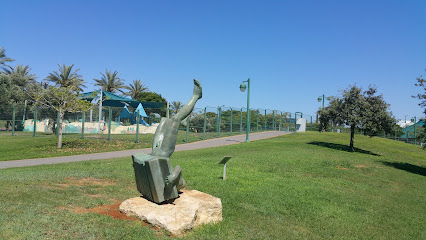
G Mall Kfar Saba
Discover G Mall Kfar Saba: A vibrant shopping destination in Israel with diverse retail, dining, and entertainment options for every traveler.
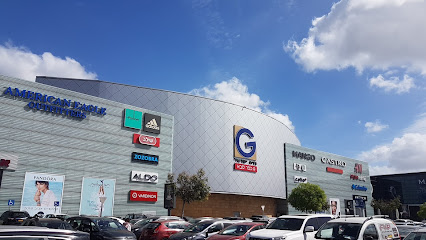
Isaac Wald Park - Kfar Saba Park
Explore Isaac Wald Park in Kfar Saba, a beautiful park featuring lush landscapes, a serene fish pond, and delightful attractions for all ages.
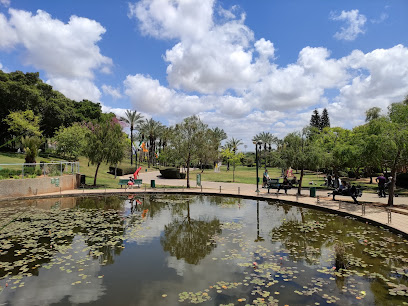
Oshiland Mall Kfar Saba
Explore Oshiland Mall Kfar Saba, the ultimate shopping and entertainment hub, featuring diverse stores, delicious dining, and family-friendly fun.
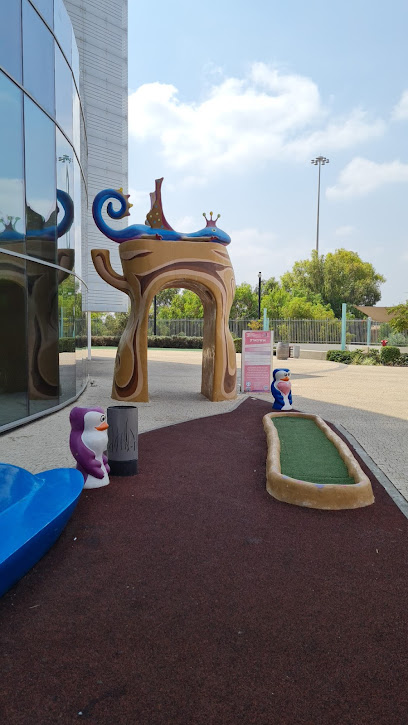
Green Kfar-Saba Mall
Experience shopping, dining, and entertainment at Green Kfar-Saba Mall, a must-visit destination for tourists in Kefar Sava.
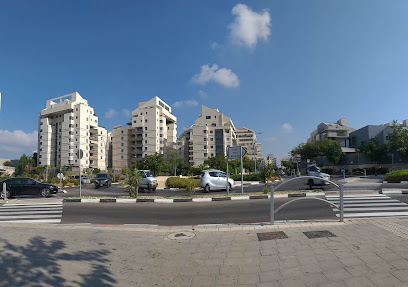
Cinema City Kfar Saba
Experience the ultimate cinematic adventure at Cinema City Kfar Saba, where the latest films meet modern comfort in a vibrant atmosphere.
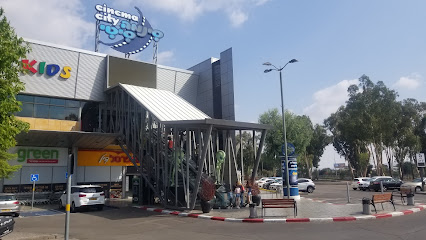
אמות קניון ערים כפר סבא
Explore Max Arim Mall in Kefar Sava for an exciting shopping experience with diverse retail, dining, and entertainment options for every visitor.
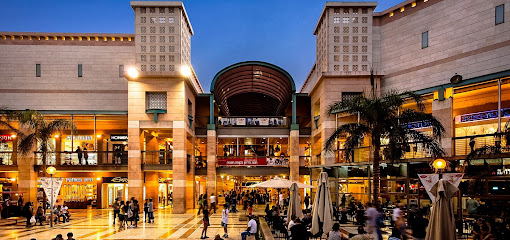
Makom Balev
Discover the vibrant culinary scene at Makom Balev in Ra'anana, where exceptional coffee and gourmet dining meet a warm, welcoming atmosphere.
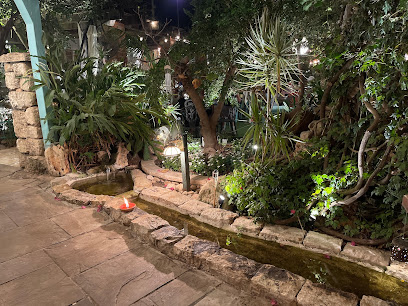
Keshet Teamim
Discover Keshet Teamim, a bustling supermarket in Kefar Sava offering a delightful array of local and international flavors for every visitor.
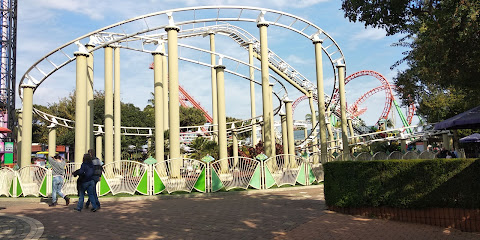
תפארת הפלאפל והשווארמה
Indulge in the authentic taste of Israeli street food at this popular falafel and gyro restaurant in Kefar Sava.
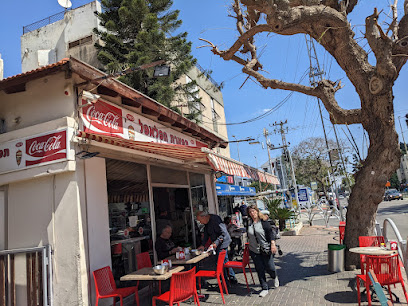
Dr. Gonzo
Experience the vibrant nightlife and delicious cuisine at Dr. Gonzo, a premier pub in Kefar Sava, perfect for social gatherings and unwinding.
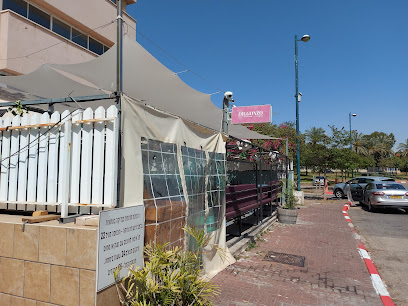
Landwer Café לנדוור
Discover the cozy charm of Landwer Café in Kefar Sava, where authentic Israeli coffee meets delightful breakfast options in a stylish setting.
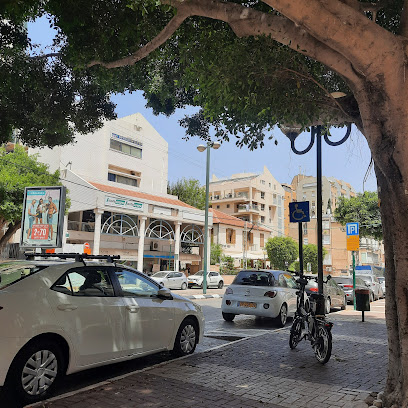
Oshiland Mall
Explore the dynamic Oshiland Mall in Kefar Sava, offering a unique shopping experience with diverse retail, dining, and entertainment options.
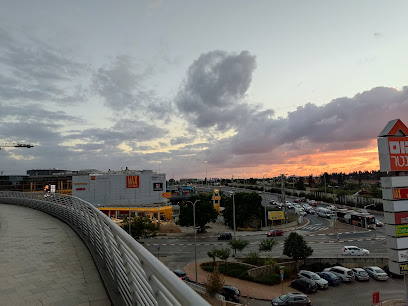
Market Yard
Experience the vibrant local culture at Market Yard, Kefar Sava's premier farmers' market offering fresh produce and artisan delights.
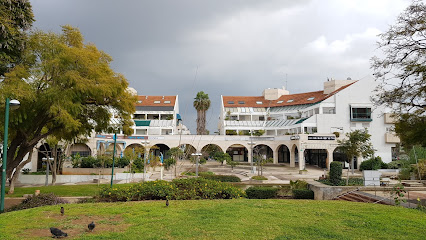
Sharona Center
Discover the lively Sharona Center in Kefar Sava, where shopping, dining, and entertainment come together in a vibrant atmosphere.
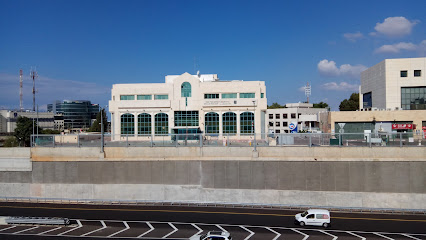
Unmissable attractions to see
Caesarea National Park
Discover the captivating blend of history and nature at Caesarea National Park, featuring ancient ruins and stunning Mediterranean views.
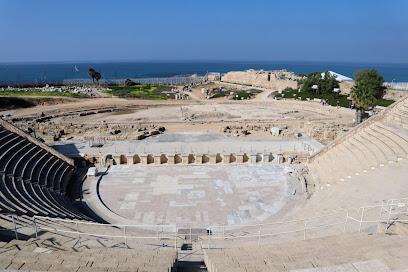
Yarkon Park
Explore Yarkon Park, Tel Aviv's largest urban park, where nature meets recreation, offering a peaceful escape filled with scenic views and activities.
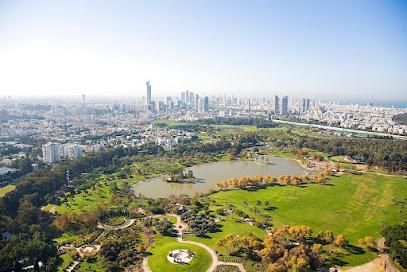
Jaffa Flea Market
Explore the eclectic Jaffa Flea Market, a vibrant hub of culture, antiques, and culinary delights in the heart of Tel Aviv-Yafo.
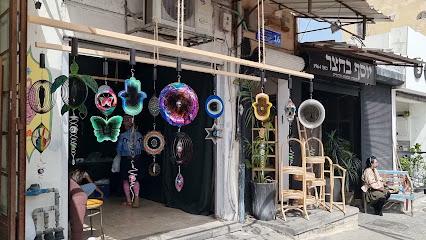
The Clock Tower
Discover the historical beauty of The Clock Tower in Tel Aviv-Yafo, a landmark that embodies the spirit of the city with its stunning architecture and vibrant surroundings.
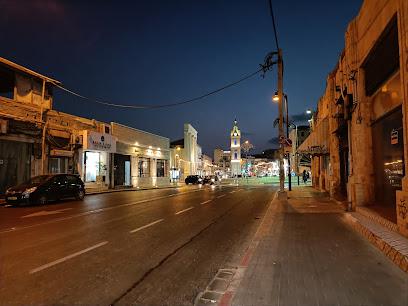
Tel Aviv Museum of Art
Discover the rich tapestry of modern and contemporary art at the Tel Aviv Museum of Art, a cultural milestone in Israel's vibrant capital.
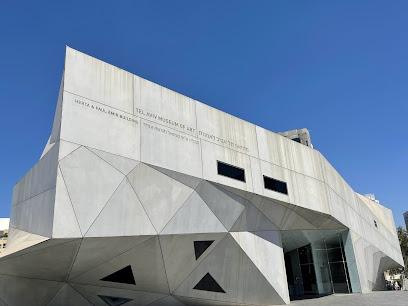
Park HaTachana
Discover the charm of Park HaTachana in Tel Aviv-Yafo, where history meets modern culture in a vibrant setting.
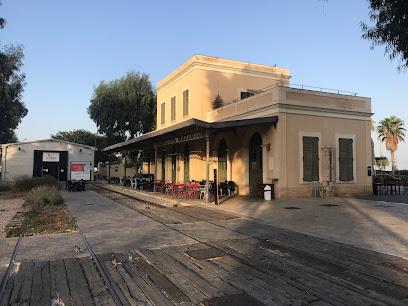
Levinski Market
Explore Levinski Market, where Tel Aviv's rich culinary traditions meet a vibrant atmosphere, offering a unique experience for every visitor.
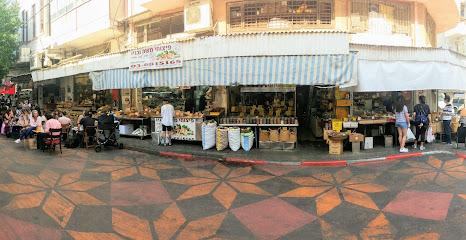
Ramat Hanadiv
Discover the tranquil beauty of Ramat Hanadiv in Zikhron Ya'akov, where history, nature, and outdoor adventure meet in perfect harmony.
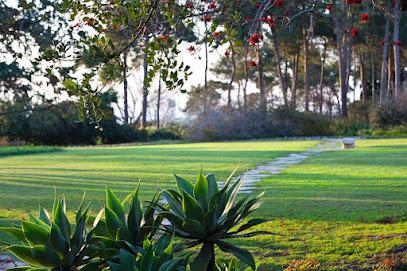
HaBima Square
Explore HaBima Square in Tel Aviv-Yafo, where culture, art, and lush gardens create a vibrant urban oasis.
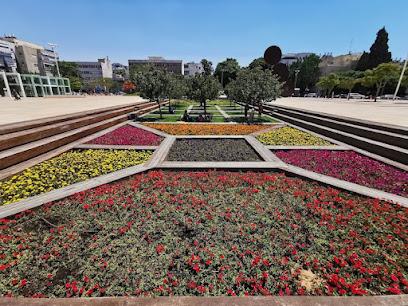
Tel Aviv Port
Experience the lively atmosphere at Tel Aviv Port, a vibrant waterfront destination filled with dining, shopping, and cultural attractions.
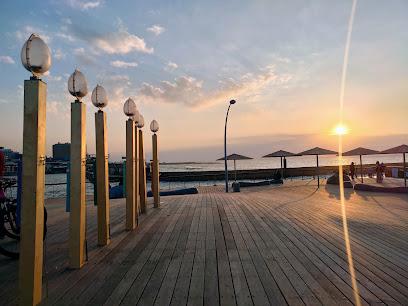
ANU Museum of the Jewish People
Experience the rich heritage and culture of the Jewish people at the ANU Museum in Tel Aviv-Yafo, where history comes alive through engaging exhibits.
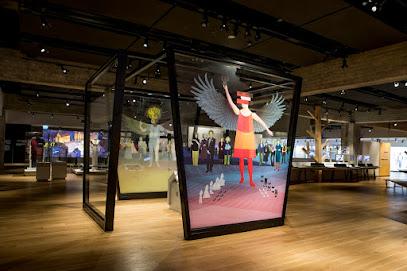
Apollonia National Park
Discover the enchanting blend of history and nature at Apollonia National Park, a must-visit tourist attraction in Herzliya, Israel.
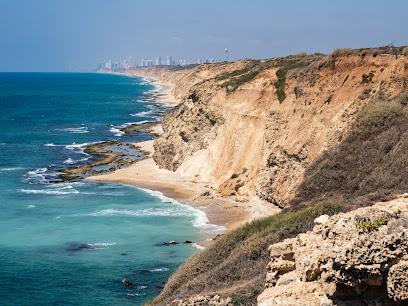
Midron Yaffo Park
Discover the beauty of Midron Yaffo Park, a coastal haven in Tel Aviv-Yafo, perfect for relaxation, recreation, and stunning Mediterranean views.
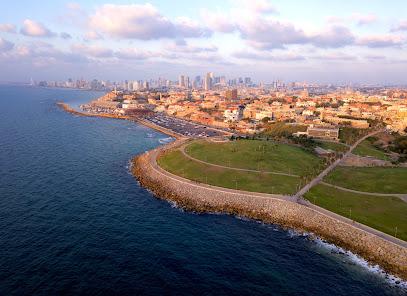
Eretz Israel Museum
Explore the rich cultural heritage of Israel at Eretz Israel Museum, a hub of archaeological and ethnographic treasures in Tel Aviv-Yafo.
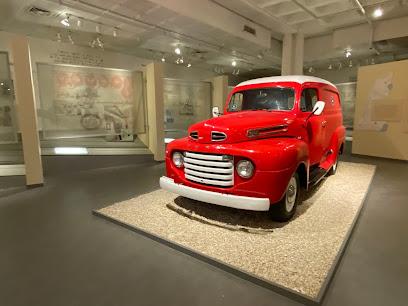
Bezalel Market
Experience the vibrant culture and culinary delights of Bezalel Market, a must-visit destination in the heart of Tel Aviv.
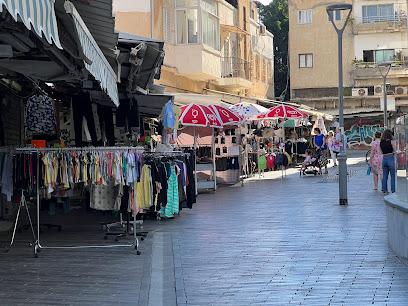
Essential places to dine
Piano Piano
Experience authentic Italian cuisine at Piano Piano in Kefar Sava – where every dish tells a story of tradition and flavor.
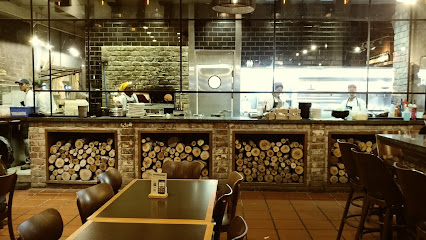
Achla
Experience culinary excellence at Achla in Kefar Sava – where tradition meets modern dining.
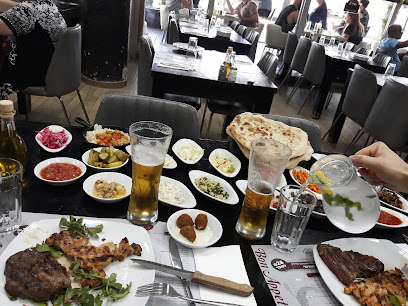
Benedict
Experience the best breakfast at Benedict in Kefar Sava, where every dish is crafted with love and flavor.
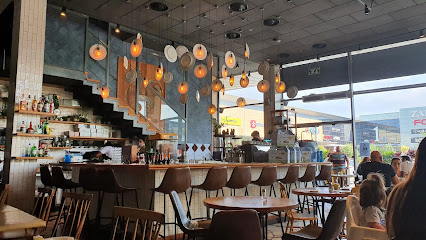
Zozobra
Discover the rich flavors of Asia at Zozobra in Kefar Sava – an exquisite dining experience awaits you.
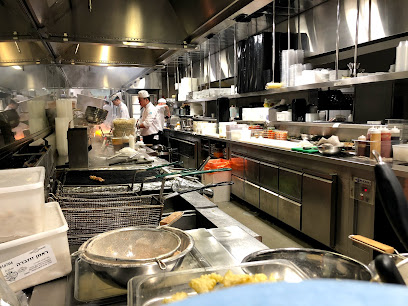
Japanika
Discover the vibrant flavors of Asia at Japanika - your go-to destination for sushi and noodle delights in Kefar Sava.
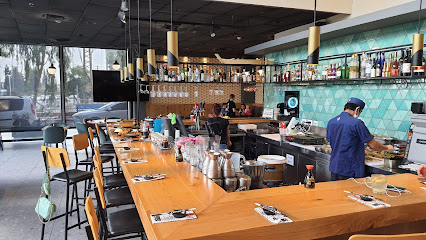
Hisha
Discover Hisha: A gastropub in Kefar Sava offering delectable dishes, live music, and an unforgettable dining experience.
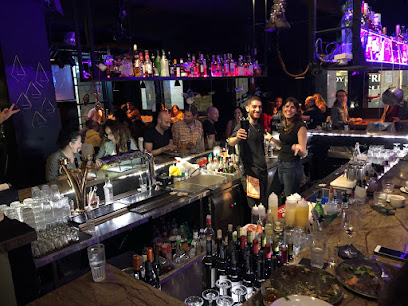
Village Steakhouse
Experience mouthwatering steaks and warm hospitality at Village Steakhouse in Kefar Sava - A must-visit destination for meat lovers!
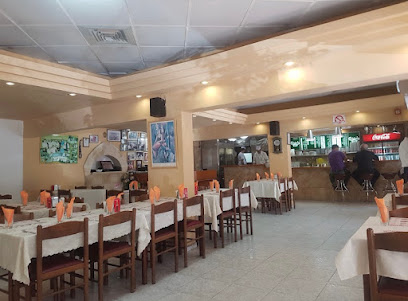
Moses
Experience the best of American cuisine at Moses in Kefar Sava—where every meal is a celebration of flavor and hospitality.
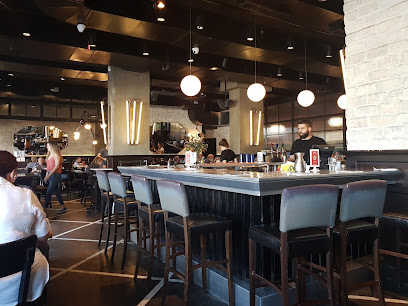
Dr. Gonzo
Discover the vibrant atmosphere and delicious cuisine at Dr. Gonzo – Kefar Sava's premier restaurant and pub experience.
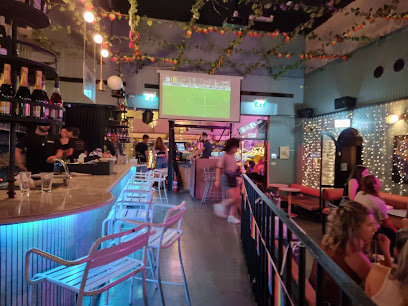
Sabino Steakhouse
Discover exquisite kosher dining at Sabino Steakhouse in Kefar Sava – where tradition meets culinary excellence.
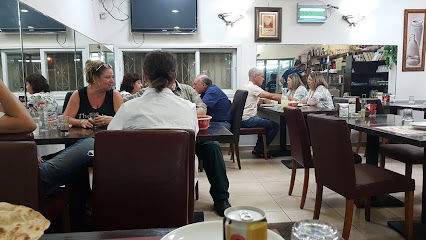
Vivino - כפר סבא
Experience authentic Italian cuisine at Vivino in Kfar Saba - where every meal is a celebration of flavor and tradition.
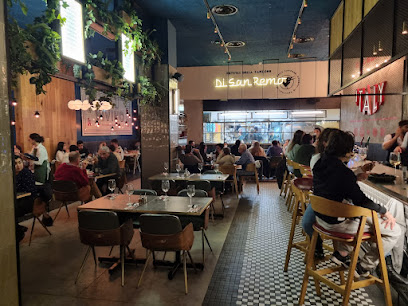
Zoi Kitchen
Savor the essence of Greece at Zoi Kitchen in Kefar Sava - where authentic flavors meet warm hospitality.
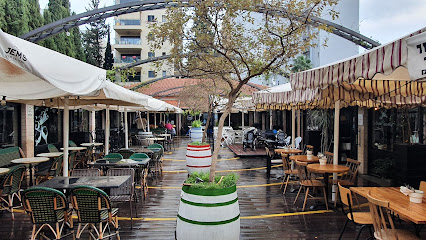
Biga Kfar Saba
Discover Biga Kfar Saba: A vibrant culinary gem offering delicious Israeli cuisine, fresh bakery items, and inviting café vibes.
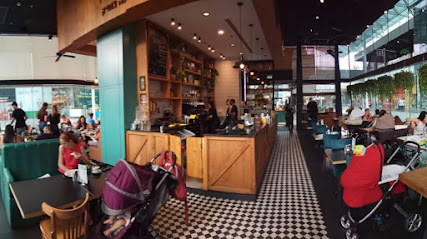
Home'is הומיז
Experience delightful brunches and exquisite wines at Home'is in Kefar Sava - where culinary passion meets vibrant dining.
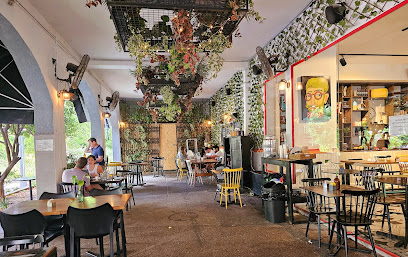
Buffet The Great Deli
Discover Buffet The Great Deli in Kefar Sava - where fresh flavors meet delightful culinary experiences in a vibrant market atmosphere.
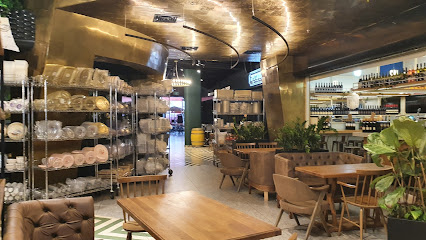
Markets, malls and hidden boutiques
G Mall Kfar Saba
Discover G Mall Kfar Saba, where shopping meets entertainment in a vibrant atmosphere filled with local flavor.
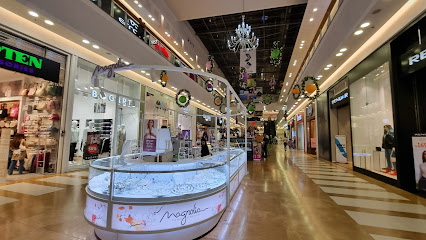
Green Kfar-Saba Mall
Experience the vibrant shopping scene at Green Kfar-Saba Mall, a premier destination for dining, entertainment, and retail therapy in Kfar-Saba.
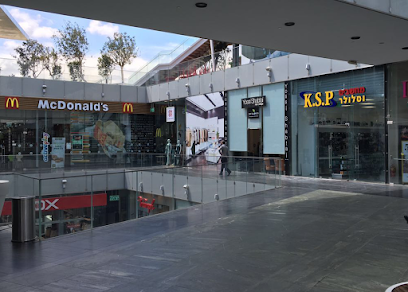
Max Stock
Discover Max Stock in Kefar Sava for an extensive selection of home goods, unique gifts, and unbeatable prices in a vibrant mall setting.
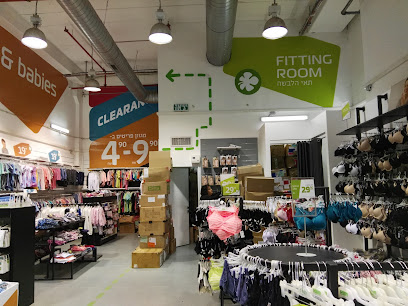
Rami Levy
Explore Rami Levy, the premier discount supermarket in Kefar Sava, where locals and tourists find unbeatable deals on fresh produce and everyday essentials.
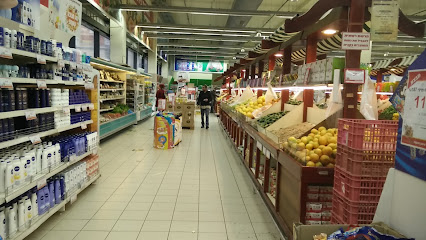
Oshiland Mall
Discover shopping, dining, and entertainment at Oshiland Mall in Kefar Sava – the ultimate destination for tourists seeking local culture.
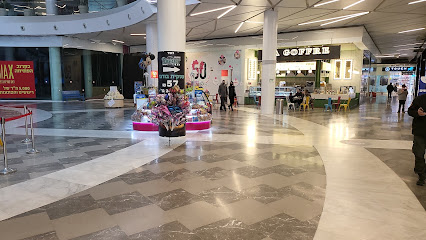
Yitzhak Cohen trading house household items and gifts Ltd.
Discover a unique selection of kitchen supplies, home goods, and gifts at Yitzhak Cohen Trading House in Kefar Sava, Israel.
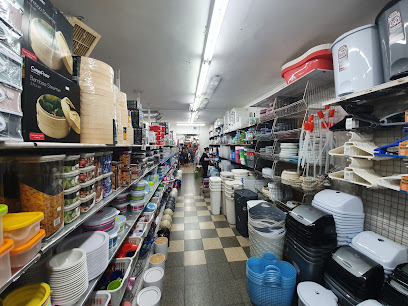
Osher Ad Kfar Saba
Discover the vibrant flavors of Israel at Osher Ad Kfar Saba, the premier supermarket for fresh produce and local delicacies.
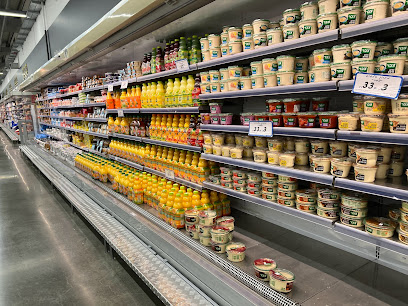
Buy the Way
Experience the best of Kefar Sava at Buy the Way, where exquisite coffee meets delightful baked goods in a warm and inviting café.
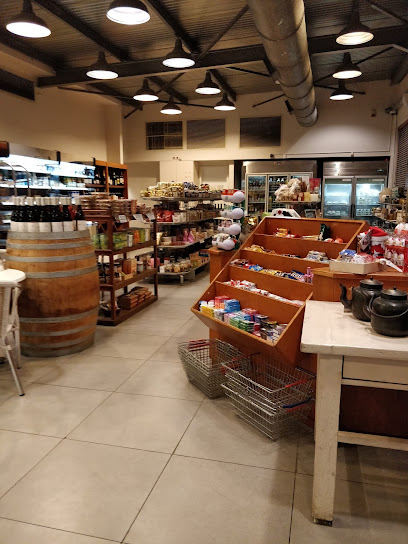
Klezmer Kfar Saba
Explore Klezmer Kfar Saba, a musical instrument store offering a rich selection of instruments and accessories for every music enthusiast in Kfar Saba.
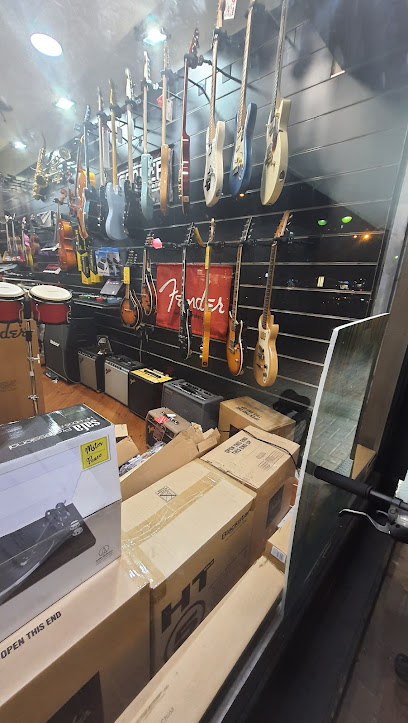
ארט כפר סבא
Art Kfar Saba: Your ultimate destination for high-quality art supplies and creative inspiration in the heart of Kfar Saba.
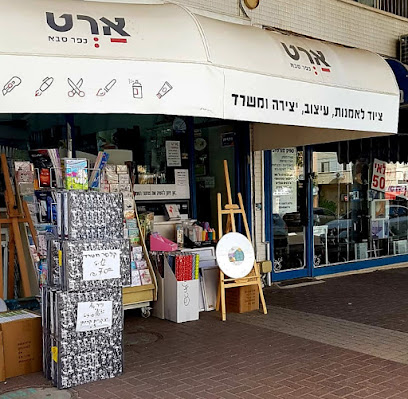
Migvan
Discover unique gifts and personalized treasures at Migvan, Kefar Sava's charming gift shop and embroidery service.
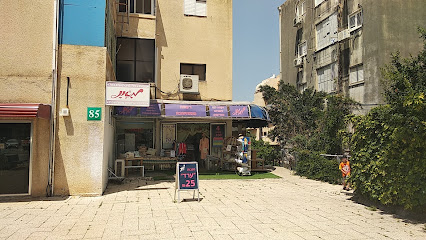
עולם השוקולד
Discover the enchanting world of Chocolate World in Kefar Sava, where exquisite chocolates and sweet delights await every visitor.
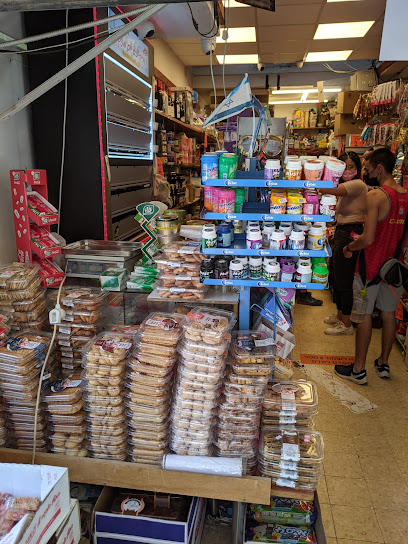
Karl Berg
Savor the flavors of Kefar Sava at Karl Berg, a local deli offering the finest selection of gourmet meats, cheeses, and fresh produce.
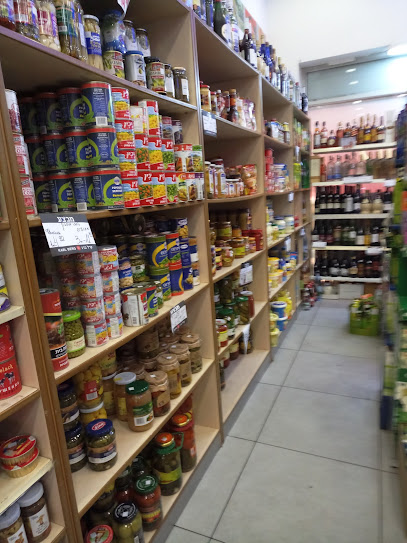
מעיין בדים
Explore מעיין בדים in Kefar Sava for a vibrant selection of fabrics and sewing supplies that inspire creativity and craftsmanship.
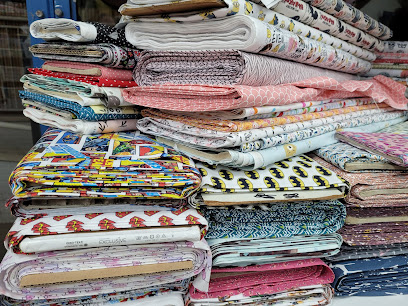
נקודת טבע - כפר סבא
Explore the essence of health and wellness at נקודת טבע - your go-to vitamin and supplements store in Kefar Sava.
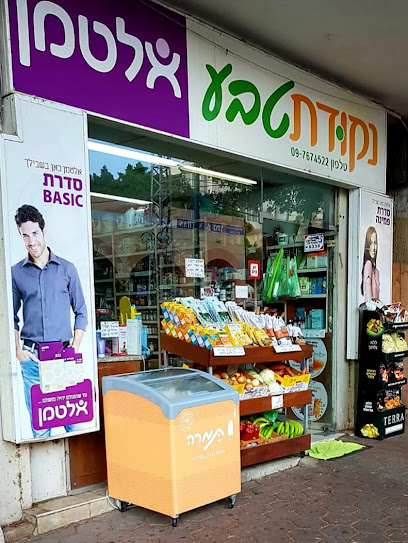
Essential bars & hidden hideouts
Beer Garden
Discover the vibrant atmosphere of Beer Garden in Kefar Sava, where great drinks, fun vibes, and a lively crowd await you.
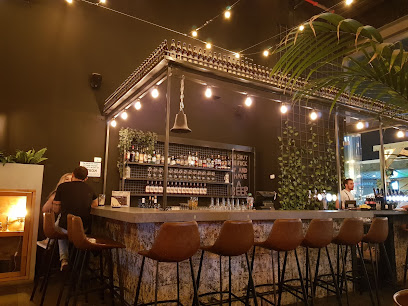
Hisha
Discover Hisha, the premier gastropub in Kefar Sava, where great food meets live music for an unforgettable night out.
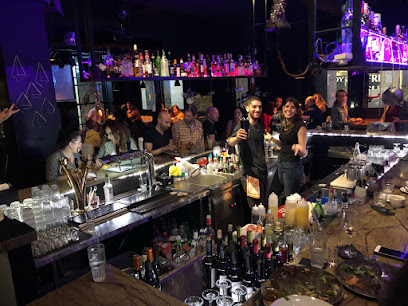
Jem's Beer Factory
Discover Jem's Beer Factory in Kefar Sava, where craft beer meets a lively atmosphere and delicious food, perfect for every visitor.
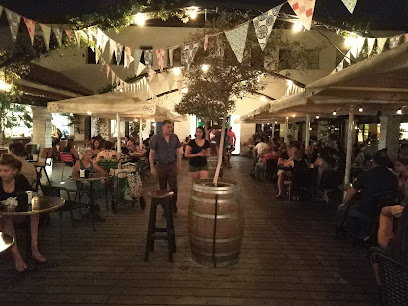
55 Beer and Food
Discover the lively ambiance of 55 Beer and Food in Kefar Sava, where great food and an extensive beer selection create unforgettable moments.
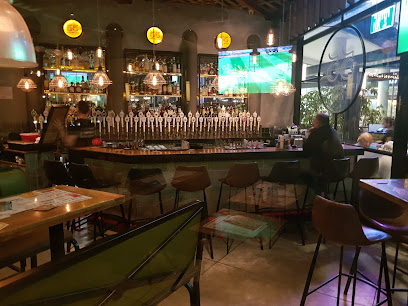
Dr. Gonzo
Discover Dr. Gonzo, Kefar Sava's premier pub for great food, drinks, and vibrant nightlife in an inviting atmosphere.
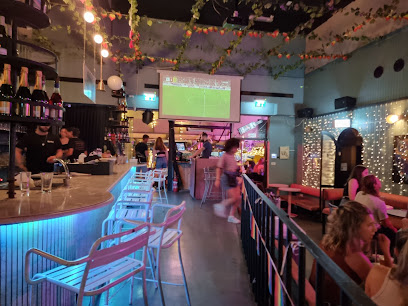
Tyler Durden
Discover the vibrant nightlife at Tyler Durden Bar in Kefar Sava, where eclectic drinks and a lively atmosphere await every night of the week.
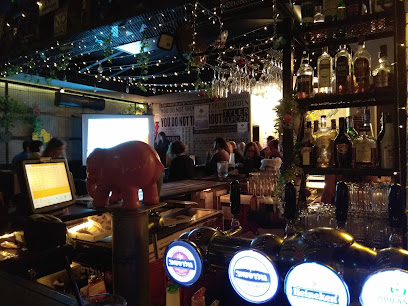
Benny's Cask Ale Pub
Discover the cozy charm of Benny's Cask Ale Pub in Kefar Sava, where craft beer lovers unite in a welcoming atmosphere filled with local flavor.
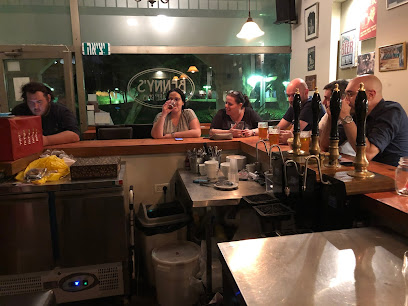
רטרו דיינר בר
Experience the vibrant nightlife of Kefar Sava at Retro Diner Bar, where live music meets delicious food in a nostalgic setting.
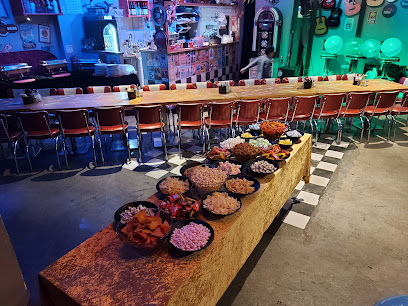
Babity
Experience the vibrant nightlife of Kefar Sava at Babity Pub, where great drinks and a friendly atmosphere await every visitor.
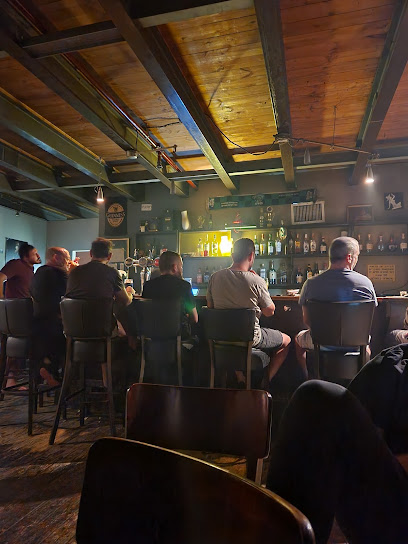
Costanza Bar
Discover the lively nightlife at Costanza Bar in Kefar Sava, where great drinks and a vibrant atmosphere await you.
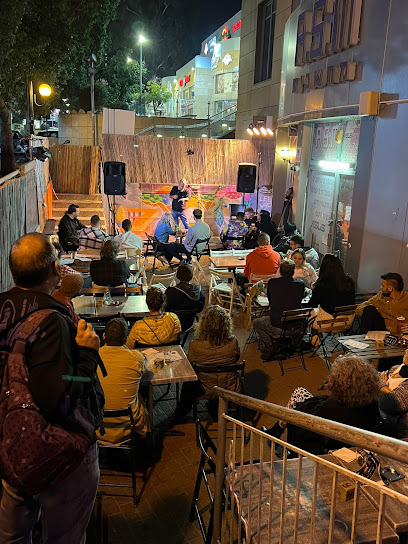
Tree House
Discover Tree House in Kefar Sava, a charming bar and restaurant offering delicious cuisine and a cozy atmosphere for a perfect night out.
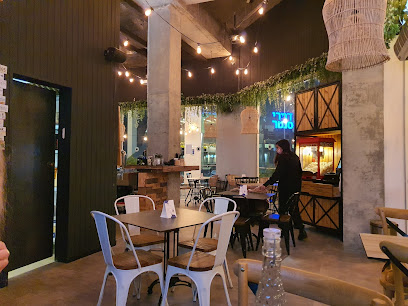
Chill - ציל בר קטן בכפר סבא
Discover Chill Bar in Kefar Sava: a cozy spot for drinks, socializing, and experiencing local nightlife in a relaxed atmosphere.
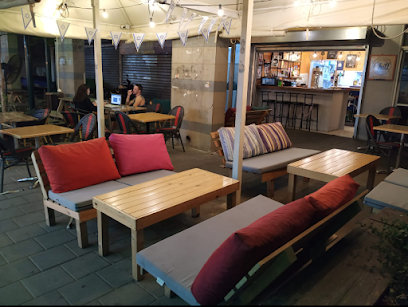
בר סרוויס - בר אקטיבי לאירועים
Discover the lively Bar Service in Kefar Sava, where exceptional drinks and an energetic atmosphere create unforgettable moments.
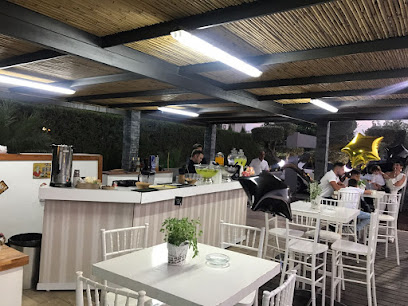
מאנצ' בר
Savor the vibrant atmosphere and delicious offerings at Munch Bar, a top-rated gastropub in Kefar Sava, perfect for foodies and night owls alike.
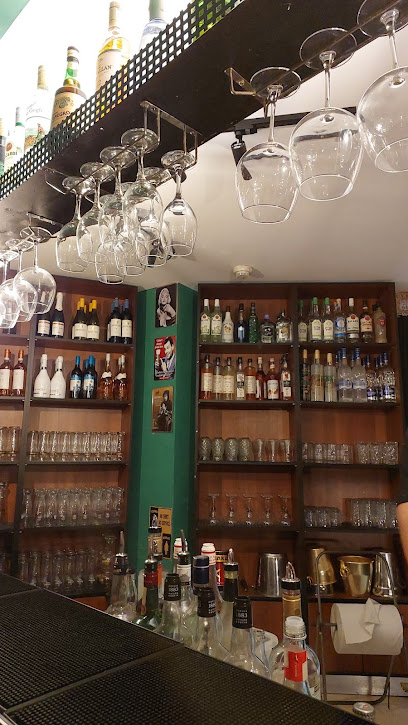
בר קורן
Discover the vibrant nightlife of Kefar Sava at Bar Koren, where great drinks and a lively atmosphere await.
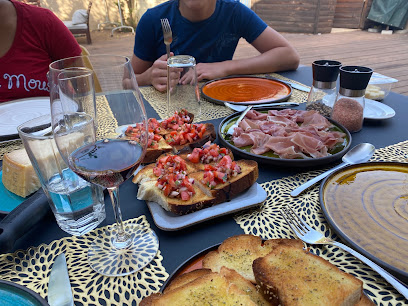
Local Phrases
-
- Helloשָׁלוֹם
[Shalom] - Goodbyeלְהַתְרָאוֹת
[Lehatraot] - Yesכֵּן
[Ken] - Noלֹא
[Lo] - Please/You're welcomeבבקשה
[Bevakasha] - Thank youתּוֹדָה
[Toda] - Excuse me/Sorryסְלִיחָה
[Slicha] - How are you?כֵיצָד אַתָּה?
[Eich Ata?] - Fine. And you?טוֹב. וְאַתָּה?
[Tov. Ve'ata?] - Do you speak English?הֲאַתָּה מְדַבֵּר אַנְגְלִית?
[Ata Medaber Anglit?] - I don't understandאֲנִי לֹא מְבִין
[Ani Lo Mevin]
- Helloשָׁלוֹם
-
- I'd like to see the menu, pleaseאֲנִי רוֹצֶה לִרְאוֹת אֶת הַתַּפְרִיט, בְּבַקָשָׁה
[Ani Rotseh Lir'ot Et Hataprit, Bevakasha] - I don't eat meatאֲנִי לֹא אוֹכֵל בָּשָר
[Ani Lo Ochel Basar] - Cheers!לְחַיִּים!
[Lechayim] - I would like to pay, pleaseאֲנִי רוֹצֶה לְשַׁלֵם, בְּבַקָשָׁה
[Ani Rotseh Leshalem, Bevakasha]
- I'd like to see the menu, pleaseאֲנִי רוֹצֶה לִרְאוֹת אֶת הַתַּפְרִיט, בְּבַקָשָׁה
-
- Help!עֶזְרָה!
[Ezra] - Go away!לְך הַלְאָה!
[Lech Haleh] - Call the Police!תַּקְרִיא לַמִּשְׁטָרָה!
[Takria Lamishtara] - Call a doctor!תַקְרִיא לַרוֹפֵא!
[Takria Larofe] - I'm lostאֲנִי אָבוּד
[Ani Avud] - I'm illאֲנִי חוֹלֶה
[Ani Choleh]
- Help!עֶזְרָה!
-
- I'd like to buy...אֲנִי רוֹצֶה לִקְנוֹת...
[Ani Rotseh Liknot...] - I'm just lookingאֲנִי רַק רוֹאֶה
[Ani Rak Roeh] - How much is it?כַּמָה זֶה עוֹלֶה?
[Kama Ze Oleh?] - That's too expensiveזֶה יָקָר מְדַי
[Ze Yakar Medai] - Can you lower the price?הֲאַתָּה יָכוֹל לִהוֹזִיל אֶת הַמְחִיר?
[Ata Yachol Lihozil Et Hamchir?]
- I'd like to buy...אֲנִי רוֹצֶה לִקְנוֹת...
-
- What time is it?כַּמָה הַשָּׁעָה?
[Kama Hashaa?] - It's one o'clockזֶה אַחַת בַּלַּיְלָה
[Zeachat Balaila] - Half past (10)חֲצִי (עֶשֶׂר)
[Chatzi (Eser)] - Morningבֹּקֶר
[Boker] - Afternoonאַחֲרֵי צָהֳרַיִם
[Acharai Tzohorayim] - Eveningעֶרֶב
[Erev] - Yesterdayאֶתְמוֹל
[Etmol] - Todayהַיוֹם
[Hayom] - Tomorrowמָחָר
[Machar] - 1אֶחָד
[Echad] - 2שְׁנַיִם
[Shnayim] - 3שָׁלוֹשׁ
[Shalosh] - 4אַרְבָּעָה
[Arba'a] - 5חֲמִשָּׁה
[Chamishah] - 6שִׁשָּׁה
[Shishah] - 7שִׁבְעָה
[Shiv'a] - 8שְׁמוֹנֶה
[Shmoneh] - 9תִשְׁעָה
[Tish'a] - 10עֶשֶׂר
[Eser]
- What time is it?כַּמָה הַשָּׁעָה?
-
- Where's a/the...?אַיֵה ה...
[Ayeh Ha...] - What's the address?מַה הַכְּתוֹבֶת?
[Ma Hak'tovet?] - Can you show me (on the map)?הֲאַתָּה יָכוֹל לְהַרְאוֹת לִי (עַל הַמַפָּה)?
[Ata Yachol Lehareot Li (Al Hamapa)?] - When's the next (bus)?מָתַי הַאָבַס הַבָּא?
[Matay Haavas Habah?] - A ticket (to ....)כַּרְטִיס (ל...)
[Kartis (Le...)]
- Where's a/the...?אַיֵה ה...
History of Kfar Saba
-
Kfar Saba, known in ancient times as Capharsaba, has roots stretching back to the Second Temple period. It is mentioned in historical texts such as the writings of Josephus Flavius and in the Talmud. The area was primarily agricultural, with olive groves and vineyards dotting the landscape.
-
During the Roman and Byzantine periods, Kfar Saba was an important settlement, serving as a way station for travelers and traders. Archaeological excavations have uncovered remnants of a Roman bathhouse and a Byzantine church, indicating the town's significance during these eras.
-
In the Crusader period, Kfar Saba was known as 'Kafr Saba,' and it featured in various Crusader maps and documents. The Crusaders fortified the area, and remnants of these fortifications can still be found in the vicinity.
-
Under Ottoman rule, Kfar Saba was a small, but thriving village. The Ottoman land records from the 16th century list Kfar Saba as a village that paid taxes on various crops, including wheat, barley, and olives. The village continued to grow throughout the Ottoman period, maintaining its agricultural character.
-
In the early 20th century, Kfar Saba became one of the first Jewish settlements in the area. Established in 1903 by Jewish pioneers, it faced numerous challenges, including malaria and attacks during the Arab Revolt of 1936-1939. Despite these hardships, the settlement grew and developed, laying the groundwork for the modern city.
-
During the British Mandate, Kfar Saba continued to develop, with investments in infrastructure such as roads, schools, and healthcare facilities. The village played a significant role in the Jewish struggle for independence, serving as a base for the Haganah and other Jewish defense organizations.
-
Following the establishment of the State of Israel in 1948, Kfar Saba experienced rapid growth and modernization. The city expanded its boundaries, incorporating neighboring agricultural lands and transforming into a vibrant urban center. Today, Kfar Saba is known for its high quality of life, excellent education system, and thriving cultural scene, which includes museums, theaters, and public parks.
Kfar Saba Essentials
-
Kfar Saba is located in the Sharon region of Israel, northeast of Tel Aviv. The nearest international airport is Ben Gurion Airport (TLV), approximately 30 kilometers away. From the airport, you can take a taxi, a shared shuttle (sherut), or a direct train to Kfar Saba. Alternatively, buses and trains from major cities like Tel Aviv and Jerusalem connect to Kfar Saba.
-
Kfar Saba has an efficient public transportation system, including buses and taxis. The city is well-connected by the Egged and Metropoline bus networks, which provide routes within the city and to neighboring areas. Taxis are readily available and can be hailed on the street or booked via mobile apps like Gett. For those who prefer driving, car rental services are available, and the city is accessible via major highways.
-
The official currency in Israel is the New Israeli Shekel (NIS). Credit cards are widely accepted in hotels, restaurants, and shops. ATMs are abundant throughout Kfar Saba, and most offer the option to withdraw cash in multiple languages. It is advisable to carry some cash for small purchases or in case you visit places that do not accept cards.
-
Kfar Saba is generally a safe destination for tourists. Standard precautions should be taken, such as avoiding poorly lit areas at night and keeping an eye on personal belongings in crowded places. While Kfar Saba does not have areas with high crime rates specifically targeting tourists, always stay vigilant and aware of your surroundings.
-
In case of an emergency, dial 100 for police assistance, 101 for medical emergencies, and 102 for fire services. Kfar Saba has several medical facilities, including the Meir Medical Center, which provides comprehensive medical care. Pharmacies are widely available for over-the-counter medications. It is advisable to have travel insurance that covers medical emergencies.
-
Fashion: Do dress modestly when visiting religious sites. Avoid overly revealing clothing. Religion: Do respect local customs and traditions. Refrain from photographing people praying or religious ceremonies without permission. Public Transport: Do be respectful and give up your seat to elderly passengers. Don’t eat or drink on public transport. Greetings: Do greet people with a friendly 'Shalom' or 'Hi'. A handshake is common in formal settings. Eating & Drinking: Do try local foods and accept hospitality graciously. Don’t refuse food or drink offerings, as it may be considered impolite.
-
To experience Kfar Saba like a local, visit the weekly farmers’ market, where you can buy fresh produce and local goods. Engage with locals, as they are often friendly and willing to share stories about the city’s history and culture. Don't miss the Kfar Saba Park, a favorite local spot for picnics and leisure. Additionally, attending a local event or festival will give you a unique insight into the community’s vibrant life.
Trending Landmark in Kfar Saba
Nearby Cities to Kfar Saba
-
Things To Do in Ra'anana
-
Things To Do in Raanana
-
Things To Do in Hod Hasharon
-
Things To Do in Herzliya
-
Things To Do in Tel Aviv
-
Things To Do in Ramat Gan
-
Things To Do in Netanya
-
Things To Do in Jaffa
-
Things To Do in Holon
-
Things To Do in Hadera
-
Things To Do in Modi'in
-
Things To Do in Caesarea
-
Things To Do in Zikhron Ya'akov
-
Things To Do in Ashdod
-
Things To Do in Jerusalem








